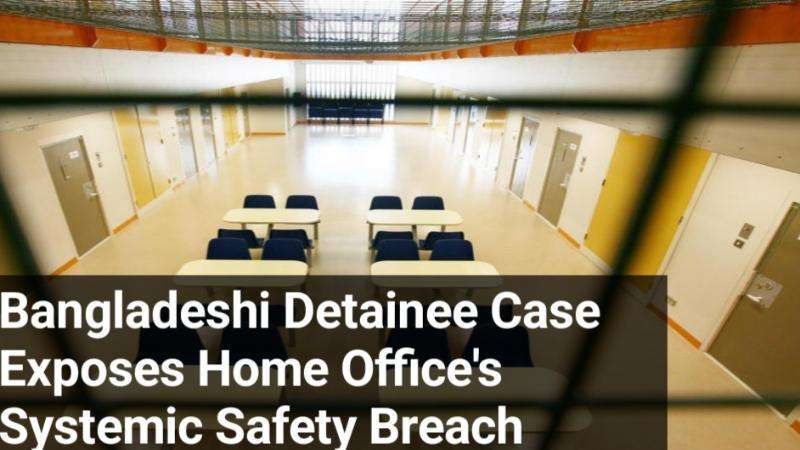Justice Secretary Shabana Mahmood has announced urgent steps to prevent the UK’s prison system from reaching full capacity by November. The latest measures include releasing inmates who breach licence conditions after 28 days, targeting individuals serving one- to four-year sentences – including sex offenders – to ease pressure on facilities now operating at 99% capacity. The move is expected to free up around 1,400 prison spaces.
Mahmood linked the announcement to what she described as the largest expansion of the prison system since Victorian times, implemented under the current Labour government. She painted a grim picture of a “cycle of crisis,” highlighting severe delays in the judicial system, with the average time between offence and sentencing now reaching 355 days in crown courts. A strained probation service, lacking adequate funding, adds to the challenges.
Currently, there are 88,807 inmates in England and Wales, with the prison population increasing by approximately 3,000 annually. With facilities nearing their limit, full capacity is anticipated within five months. To address this, the government has allocated an additional £4.7 billion to build three new prisons, as part of a record expansion plan. For context, HMP Berwyn in Wales – the UK’s largest prison – has a capacity of 2,100.
Overcrowding and Prison Conditions
Severe overcrowding continues to plague UK prisons, with around 25% of inmates sharing single-occupancy cells. This has contributed to a surge in violence and staff assaults. According to the Ministry of Justice, over 40% of adult prisons were deemed to be of “concern” or “serious concern” in the year leading to March 2024, with overcrowding driving unacceptable levels of violence and self-harm.
Despite former Prime Minister Boris Johnson’s £100 million promise in 2019 to improve prison safety and reduce crime, conditions have worsened. In 2024 alone, there were 16,605 reported assaults on staff – a 15% rise from the previous year. Notably, two prison officers were recently attacked at HMP Woodhill, with one sustaining serious neck and ear injuries.
Cuts to rehabilitation services have worsened matters, restricting access to education, health care, and drug treatment. This is in stark contrast to Scandinavian countries, which prioritise humane treatment and rehabilitation. Their systems, modelled on everyday life, have led to lower reoffending rates and better outcomes for prisoners.
HMP Grendon in Buckinghamshire is currently the UK’s only therapeutic prison. Known for its rehabilitative approach, it fosters mutual respect between staff and inmates and delivers successful rehabilitation programmes.
Sentencing Practices and Incarceration Rates
The UK incarcerates significantly more people than its Western European counterparts, with 134 individuals imprisoned per 100,000 people. This figure contrasts with 66 in the Netherlands, 71 in Germany, and just 53 in Finland – the EU’s lowest.
The UK also imposes longer sentences, especially in England and Wales, where the average prison term is 22.5 months. In contrast, countries like the Netherlands favour community sentences and rehabilitation. The Dutch TBS system, for example, focuses on placing certain offenders in treatment facilities. As a result, the Netherlands has seen a 40% drop in its prison population over the past 20 years.
Germany and the Netherlands, despite larger or comparable populations, have significantly fewer prisoners – 56,557 and 11,537 respectively – compared to the UK’s 88,807.
Reintegration and Early Release
Reoffending remains a major concern in the UK, costing an estimated £18 billion annually. Offenders serving sentences under a year have a reoffending rate of 56%, while the overall rate is 26.5%. The lack of rehabilitation and poor reintegration into society are key contributors. A 2023 study revealed that over half of inmates spent more than 22 hours a day in their cells, with the figure rising to nearly 70% on weekends.
Early release schemes have previously been deployed to tackle overcrowding, although they have sparked criticism – particularly following the release of individuals involved in the Southport riot in July 2024.
Under the newly announced strategy, eligible inmates could be released after serving just one-third of their sentence, provided they complete assigned work tasks and maintain good behaviour.








.svg)


